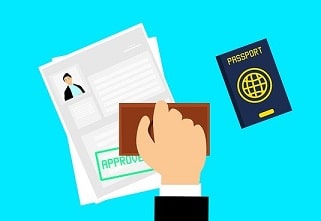Guest post by Sarah Croft, Marketing Manager, TrustID
As you probably know, if you’re employing staff in the UK, you must make thorough and systematic Right to Work checks on every employee’s status – by checking their passport, visa, and/or another immigration document.
No matter how many staff you’re taking on each year, it’s still important that you’re sure every employee is who they say they are and has the Right to Work in the UK.
In March 2020, in response to Covid-19, the Government adjusted Right to Work guidance. As a result, employers can now accept scanned documents or a photo of documents (rather than originals) via email or a mobile app and carry out checks over video calls. These changes offer the opportunity to make robust, compliant checks, albeit in a new, remote environment.
It’s not yet clear if or when Right to Work checks will return to their pre-Covid state. However, the ongoing complexity of government guidelines and uncertainty around post-Brexit immigration changes means that lots of businesses are finding it increasingly difficult to efficiently manage Right to Work checks, whether they are seeing staff face-to-face or online.
This was highlighted by a recent survey on our website, in which only 15 per cent of respondents were able to answer all 5 of our common Right to Work questions correctly.
Alongside this, our expert document helpdesk team continue to see a rising number of fake or fraudulent identity documents presented for Right to Work purposes to our customers of all sizes, across all sectors, including healthcare, construction and hospitality.
The good news is that identity validation and Right to Work services are now very affordable and accessible to any organisation, whether you employ 50 staff or 50,000. Here are some of the ways in which technology could help:
-
Save time and drive efficiencies
A good Right to Work system processes an identity document check within minutes and quickly confirms an employee’s Right to Work status. What’s more, the right technology will let you run checks from anywhere and can even allow your staff to remotely upload images of their identity documents themselves, so you don’t have to wait for your employees to send you their documents or ask them to meet you in a central office.
-
Introduce consistency
Sometimes, knowing which combination of documents to ask for can be difficult, particularly if your employees are presenting many types of ID documents from all over the world. A Right to Work validation service will ensure that you ask for the right documents for every candidate and detail any work restrictions or follow-up checks you might need to make.
What’s more, using technology means that you don’t need to train your team to be document experts. Identity verification services can consistently check security features within an identity document and assesses whether it’s genuine more effectively than a visual check alone. A validation service means that every staff document is checked in the same way, no matter who makes the check, helping you to avoid inconsistent decision-making or unconscious bias towards certain applicants.
-
Protect your business
Let’s be honest, most candidates will show you genuine ID documents that give them the Right to Work in the UK but wouldn’t it be nice to have peace of mind?
If your business is unlucky enough to be targeted by an illegal worker, you could face a fine of £20,000 per illegal worker. As this penalty is based on each illegal worker within an organisation and not the size of the company, the impact on a smaller business could be crippling.
But more than that, if you can’t verify an employee’s true identity, can you be confident in who you are employing? With the cost of hiring a new employee running into many thousands of pounds, thorough pre-employment checks help to protect your business and safeguard the investment you’re about to make in a new employee.
-
Stand out in a competitive world
Lots of our customers actively promote their use of enhanced ID checks: this gives their clients confidence and peace of mind that staff have been thoroughly and consistently verified and differentiates their service from competitors. It also acts as a deterrent to workers who might apply for roles using fraudulent documentation or without the necessary proof of their Right to Work status.
-
Be confident in the face of audit
Right to Work systems will quickly create a validation report, date and time stamped and including details of who made the check, so you’ll be well prepared for an audit – be that from an external company, a client or even immigration enforcement.
Over the past few months, businesses have been forced to embrace online services for many areas of their business. Introducing technology in times of uncertainty may seem daunting but today’s validation systems are within easy reach of all businesses, whatever their size. With no set-up costs and low volume ‘pay-per-check’ bundles available, an online identity validation system could be a cost-effective way to help your business be more efficient, consistent and competitive when making Right to Work checks.
More on TrustID here


